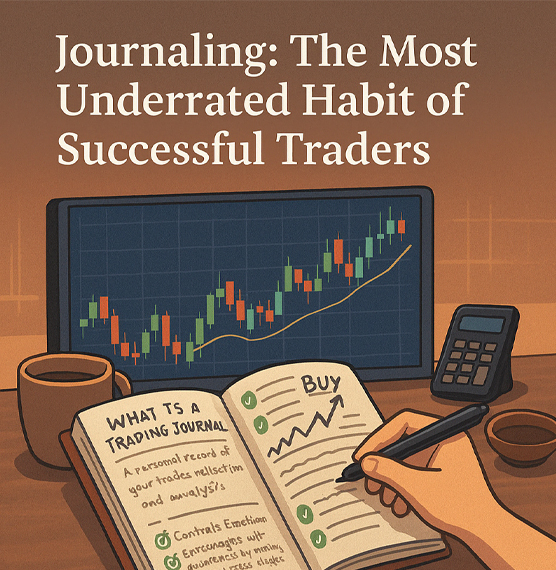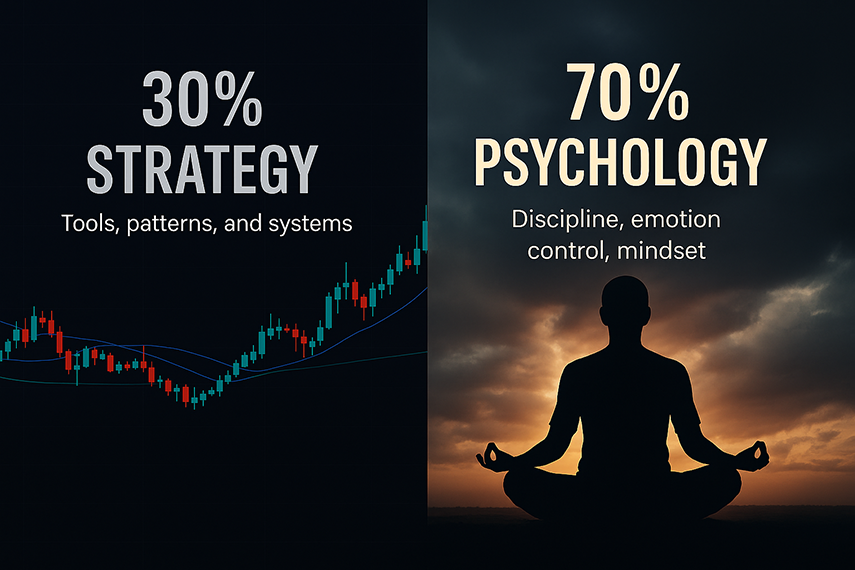Trading Psychology vs. Strategy: Which Matters More?
70% Psychology, 30% Strategy: Why the Balance Isn’t Equal
Traders often enter the markets with a strong focus on strategies indicators, patterns, entry/exit points. But the results over time show that emotional control, discipline, and mental resilience are what sustain profitability.
Even with a well-tested strategy, emotional decisions driven by fear, greed, or impatience can lead to poor execution and losses. On the other hand, a disciplined trader with basic strategies often performs better by consistently following rules and adapting to conditions.
Key Observations
1. A Strong Mindset Enhances Any Strategy
Traders with emotional control can stay consistent, follow their plans, and make fewer impulsive decisions — even during volatile markets.
2. Weak Psychology Undermines Good Strategies
Lack of discipline often leads to overtrading, revenge trading, ignoring stop-losses, or exiting trades too early. These behaviors, not the strategy itself, often cause failure.
Psychological Factors That Influence Trading
- Fear and hesitation during high volatility
- Overconfidence after a few wins
- Impatience with slow markets
- Revenge trading after losses
- Attachment to trades and outcomes
Understanding and managing these mental patterns is often more important than tweaking the technical side of trading.
Conclusion
While strategy provides the structure, psychology governs execution. Sustainable trading performance depends largely on how traders manage their mindset under pressure. The ability to stay emotionally neutral and make consistent decisions is often what separates success from failure in the long run.


